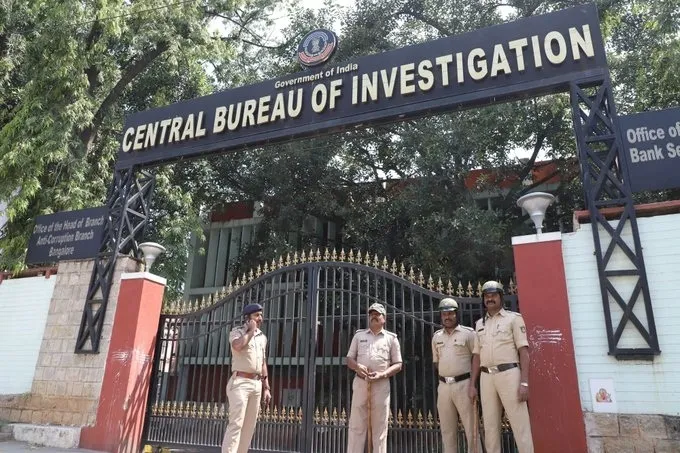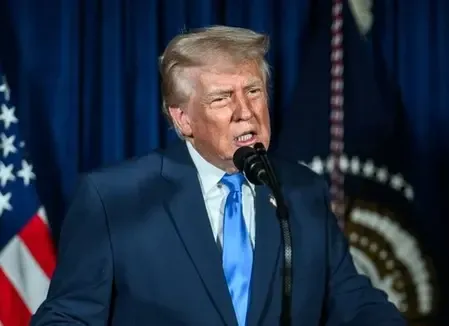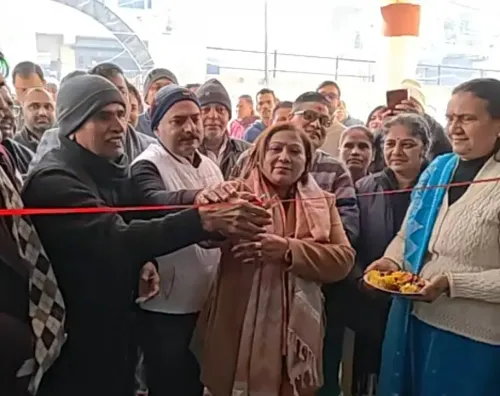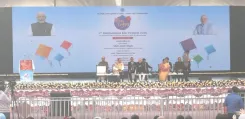Is the Medical College Scam Linked to Rawatpura Sarkar and Influential Followers?

Synopsis
Key Takeaways
- Ravi Shankar Maharaj is at the center of a significant medical education scam.
- The CBI has filed an FIR against him and others involved.
- The implications of this case raise concerns about the intersection of religion and politics in India.
- The Shri Rawatpura Sarkar Lok Kalyan Trust runs numerous educational institutions.
- This scandal could have lasting effects on public trust in educational accreditation.
Bhopal, July 5 (NationPress) Ravi Shankar Maharaj, embroiled in a medical education scam that involves illicit payments for the accreditation of inferior medical colleges, has seemingly flourished over the years with the backing of prominent followers, including politicians and bureaucrats. His meticulous cultivation of a network that spans religion, education, and politics across central India has played a pivotal role in his success.
This marks the first interaction with the law for the self-proclaimed spiritual leader, known as Rawatpura Sarkar, as the Central Bureau of Investigation (CBI) has issued its initial information report (FIR) against him.
The FIR identifies the godman among 34 accused individuals and one unidentified suspect. It was filed on June 30 under relevant sections of the Bharatiya Nyaya Sanhita (BNS), 2023, and the Prevention of Corruption Act, 1988 (amended in 2018), concerning criminal conspiracy and bribery of public officials.
Numerous high-ranking officials, intermediaries, and representatives of private medical colleges throughout India are implicated in securing recognition for over 40 allegedly subpar medical institutions through bribery, falsified documentation, and manipulated inspections.
Recently, the CBI apprehended six individuals, including three doctors, for preparing a favorable report for the Shri Rawatpura Sarkar Medical College (SRIMSR) in Nava Raipur, Chhattisgarh. The accused reportedly accepted a bribe of ₹55 lakh from the college management to produce a favorable report, despite significant deficiencies in the college's facilities.
The CBI investigation raises critical concerns regarding the exploitation of religious influence in academic and administrative settings.
Born on July 5, 1968, in Chipri village, Tikamgarh district of Madhya Pradesh, he was named Ravi by his maternal grandparents. From a young age, his deep interest in spirituality was evident, often retreating to nearby temples and caves for solitary contemplation.
A biography on the Shri Rawatpura Sarkar Dham website notes that he resisted formal schooling. When reprimanded by the principal for lack of attentiveness, young Ravi allegedly exclaimed, “What can you teach me? My almighty father will educate me.”
His mother, Ramsakhi Sharma, recognized his devotion but was concerned about his future. His father, Kripashankar Sharma, worked as a ‘Gram Sevak’ in the local panchayat and faced frequent transfers.
To provide stability for their children's education, the family moved in with relatives in Chipri village. As the eldest of five siblings, Ravi's spiritual journey began to gain momentum in the 1990s.
He gained prominence after establishing his base in Rawatpura village, Bhind district, where his teachings attracted a large following. Over time, he institutionalized his influence through the Shri Rawatpura Sarkar Lok Kalyan Trust, which expanded into education, healthcare, and public welfare.
The trust manages a network of schools and charitable organizations across Madhya Pradesh and Chhattisgarh. In 2018, he established Shri Rawatpura Sarkar University in Raipur under the Chhattisgarh Private Universities Act, offering degrees in engineering, law, pharmacy, management, and the arts.
His institutions often blend formal education with spiritual teachings, appealing to both rural communities and devout students.
Renowned for hosting grand religious gatherings, wearing saffron robes, and maintaining connections with political leaders, Rawatpura Sarkar has cultivated a reputation for influence and reverence.
His closeness to power has led many to label him a “baba close to the corridors of influence,” a title reinforced by his frequent public appearances alongside ministers, bureaucrats, and elected officials. However, his rise has not been without controversy.
In 2023, a woman accused the staff at one of his ashrams of coercing women into unpaid labor under the pretense of ‘seva’ and subjecting them to psychological harassment. Although the police chose not to pursue charges, the Human Rights Commission intervened and initiated an inquiry.










